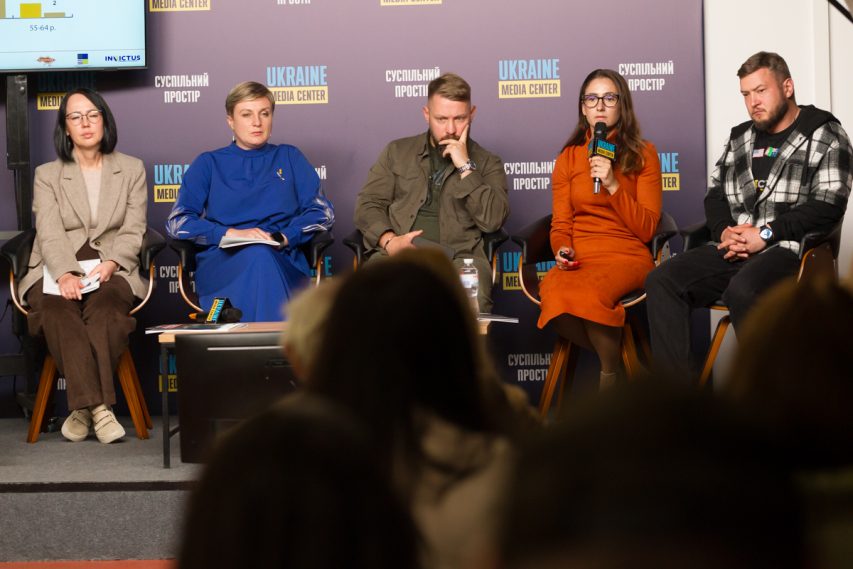
Study: Adaptive sports must accompany veterans’ rehabilitation
Rehabilitation for veterans should be paired with adaptive sports to accelerate recovery and strengthen social connections, according to new research by the Centre for Strategic Communications Stratcom Ukraine.
In a three-month study, the organization examined the impact of adaptive sports programs at three clinics, offering participants activities such as archery and rowing on a simulator. The findings suggest that adaptive sports not only have been associated with reducing stress but also foster a stronger sense of community among veterans.
Hanna Bielorusova, director of the Stratcom Ukraine, presented the results at the Media Center Ukraine.
“We decided to take a new approach – to integrate adaptive sports into rehabilitation programs for veterans, combining them with physical therapy and social support. The results of the study showed that adaptive sports accelerate recovery,” Bielorusova said.
Researcher Iryna Pykalo, who oversaw the study, said 277 people were initially enrolled, with a total of 268 completing the program.
Participants were divided into four groups. The first group followed a rehabilitation plan prescribed by a doctor. The second combined treatment is with archery. The third paired treatment involved rowing, while the fourth incorporated archery and rowing alongside the prescribed program. The group that practiced both sports showed the strongest recovery outcomes.
The study measured the physical and psychological condition of participants before and after their rehabilitation.
“Based on the data, we developed a methodology for expanding the network of adaptive sports spaces. In the initial survey, patients reported a low quality of life at 15.6%. In the follow-up survey, that figure dropped to 8.5%. After rehabilitation, participants rated their health as very good,” Pykalo said.
The research also found significant improvements in veterans’ social ties. At the start, many participants described their interactions as poor. By the end of rehabilitation, nearly 70% reported stronger social connections, more than double the initial rate.
The study’s overall conclusions underscored that:
– Rehabilitation with adaptive sports improves both physical and mental health.
– Combining physical and emotional support leads to better health outcomes and stronger perceptions of well-being.
– The data highlight the importance of engaging medical professionals, psychologists, therapists, and social workers in tandem.
– This approach has a meaningful impact on veterans’ adaptation and overall quality of life.
Read more: https://mediacenter.org.ua/news
 Back
Back 